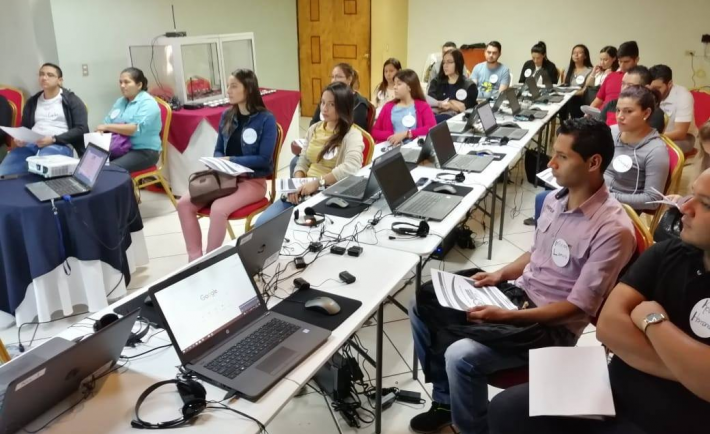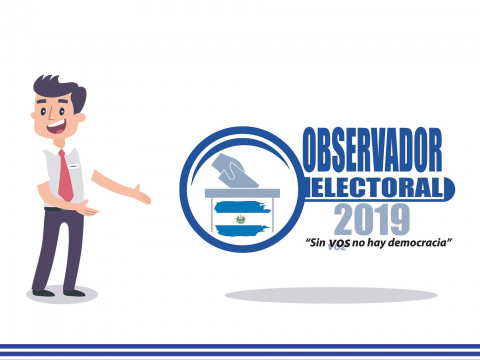My seatmate pulled out her phone the moment our packed plane touched down in El Salvador three days before the country’s February 3 presidential elections. She began furiously scrolling through her Facebook feed, her face lit up with campaign slogans, articles and the smiling faces of candidates Nayib Bukele, Carlos Calleja and Hugo Martinez. Peering over her shoulder, I watched as she punched out a comment lambasting corrupt status-quo politicians. “El Salvador doesn’t need another leader who steals from us,” she typed. “Bukele deserves a chance.”
Fifty-three percent of Salvadoran voters agreed, casting their ballots for the 37-year-old Bukele, an anti-establishment outsider who spoke directly to citizens through social media. In an increasingly familiar crescendo on the global stage, the tide of citizen discontent and disillusionment with economic stagnation, violence and corruption came crashing down on the two-party system entrenched since the end of the country’s 12-year civil war in 1992. Bukele defeated his opponents from the two dominant parties – the conservative Nationalist Republican Alliance (ARENA) party and the former leftist guerilla group turned party Farabundo Marti National Liberation Front (FMLN) – so soundly as to even avoid the runoff election typical in Salvadoran politics.
The goal of my trip to El Salvador was to assist our local partners with a USAID-funded election-day observation. NDI supported a consortium of Salvadoran universities and a civil society organization, together called Observador Electoral 2019, to recruit, train and deploy 850 Salvadoran election observers to monitor a statistically representative sample of 700 polling stations nationwide. After receiving reports from 99 percent of observers, the consortium published a preliminary report characterizing the elections and voting processes as largely clean and well-run.
The nerve center of Observador Electoral’s sample-based operation was a hotel-room-cum-data-center, aptly nicknamed “the cave” (la cueva), where database experts monitored the flow of reports submitted by observers across the country. Fifty-some students also staffed the cueva, many inspired to volunteer in order to complete university-required community service hours. While some were earnest election watchdogs, others shuffled into training with long faces, looking skeptical when informed we would see them at four a.m. sharp on Election Day. “At least this beats collecting a pound of recycling to earn one hour of service,” one student laughed.
Despite any initial reservations, the room buzzed with energy by five a.m. on election day as students fielded phone calls from the observers and hounded those who had not yet submitted reports. When they weren’t speeding through their call lists, headsets on and hunched over their laptops, students swapped funny observer stories and joked that working on an observation upped their cool factor. Enthusiasm was so high that twice the number of anticipated volunteers showed up at six am on Monday for an extra shift, some after working over 10 hours on Sunday.
I worked with an Observador Electoral counterpart to help manage the critical incident desk, working with a team of six students who followed up on reported irregularities. While some of these reports provided some exhaustion-induced hilarity – such as the observer who flagged an out-of-order bathroom (“partisan motivation was unlikely”) – they also were a birds-eye view to common problems across the country. In some cases, voters wearing clothing supporting a candidate were forced to change or barred from voting, and other citizens were unable to vote because they had expired identification documents. Thirteen percent of observers were barred from observing results transmission at their voting station. There were no reports of significant violence throughout the day, a relief considering the uptick in gang activity ahead of elections.
The few quiet moments in the cueva provided the opportunity to hear students’ perspectives. While they held disparate views across the political spectrum, almost everyone I spoke to reflected the country’s general weariness and being underwhelmed with the two-party status quo and the political elites running their government. They also seemed to differ on whether Bukele – who popularized the slogan, “there’s enough money if nobody steals” – would be a political savior or yet another corrupto.
As results trickled in via a Facebook Live broadcast on election night, I watched my Salvadoran colleagues’ faces transform from drained to disbelieving. Despite pre-polls showing him with a significant lead, Bukele’s decisive victory surprised many analysts who counted on the FMLN and ARENA party machines to mobilize voters, especially in rural areas, and push the elections to a second round. Official results, published on February 7, proved these analysts sorely mistaken, as ARENA’s Calleja and the FMLN’s Martinez won only 31.72 percent and 14.41 percent of votes, respectively, compared to Bukele’s 53.10 percent.
Expectations are high. Bukele must now try to build consensus to implement his campaign promises, which include establishing an international agency to fight against corruption and impunity in El Salvador, as well as plans to revive the economy and increase citizen security. While time will tell if Bukele can channel his strong results into effective governance once taking office on June 1, the massive citizen mobilization of almost 1,000 people for this election observation demonstrates the immense capacity of young Salvadorans to engage with their democracy outside the voting booth.


